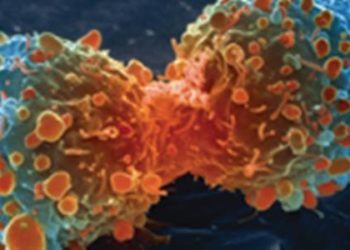Patient-reported feedback may not improve health-related quality of life
Image: PD
1. Patient-reported feedback through the computer-based PediQUEST survey to oncologists and families does not significantly affect symptoms or health related quality of life (HRQoL).
2. Initial analysis suggests positive, though not statistically significant, effects on emotional quality of life, and reports are valued by families.
Evidence rating level: 2 (Good)
Study Rundown: Multiple approaches have been taken towards improving the quality of life for pediatric patients with advanced cancer. One approach involves providing patient-reported outcomes (PROs) to providers and families. The purpose of this study was to determine whether providing this data to providers and families of these patients affects symptom severity and health-related quality of life (HRQoL). At the conclusion of this multicenter trial, the authors found that this feedback did not significantly affect symptom severity, HRQoL, or sickness score trends. Subgroup analysis suggested that emotional quality of life and sickness scores improved significantly among children >8 years old who survived twenty weeks. Furthermore, the survey reports were highly valued by the patients, families and providers. Based off these results, the authors concluded that this intervention still has clinical potential. It should be noted that effect size of the intervention may have been reduced by PROs measured in the control arm, possible bias skewed towards the null due to patient mortality, and low intensity of the intervention.
Click to read the article in JCO
Relevant reading: Easing of suffering in children with cancer at the end of life: Is care changing?
In-Depth [randomized controlled trial]: This study was a randomized controlled trial enrolling children 2 years old or older with advanced cancer. Patients or their parents completed the computer-based Pediatric Quality of Life and Evaluation of Symptoms Technology (PediQUEST) survey, which consisted of age-adapted versions of questions from the Memorial Symptom Assessment Scale (MSAS), Pediatric Quality of life scales (PedsQL4.0) and overall Sickness. The intervention group included 51 patients, and oncologists and families received summary results of PROs. The control group, which included 53 patients, had no feedback. Primary outcomes included the scores on MSAS, PedsQL4.0 and Sickness socres during 20 weeks of follow-up along with satisfaction reports from patients, families and providers. No significant relationship between feedback and average scores was found overall. However, among children aged >8 years who survived the 20 weeks, feedback improved PedsQL4.0 emotional (+8.1; 95% CI, 1.8 TO 14.4) and Sickness (-8.2; 95% CI, -14.2 to -2.2) scores. Satisfaction scores from children, parents and providers suggested a preference for continued use.
More from this author: Rituximab linked with reduced chronic immune disease following stem cell transplantation, High-dose prophylaxis for hemophilia increases costs with minimal benefit, Ambrisentan found ineffective against idiopathic pulmonary fibrosis
© 2013 2minutemedicine.com. All rights reserved. No works may be reproduced without expressed written consent from 2minutemedicine.com. Disclaimer: We present factual information directly from peer reviewed medical journals. No post should be construed as medical advice and is not intended as such by the authors, editors, staff or by 2minutemedicine.com. PLEASE SEE A HEALTHCARE PROVIDER IN YOUR AREA IF YOU SEEK MEDICAL ADVICE OF ANY SORT.







